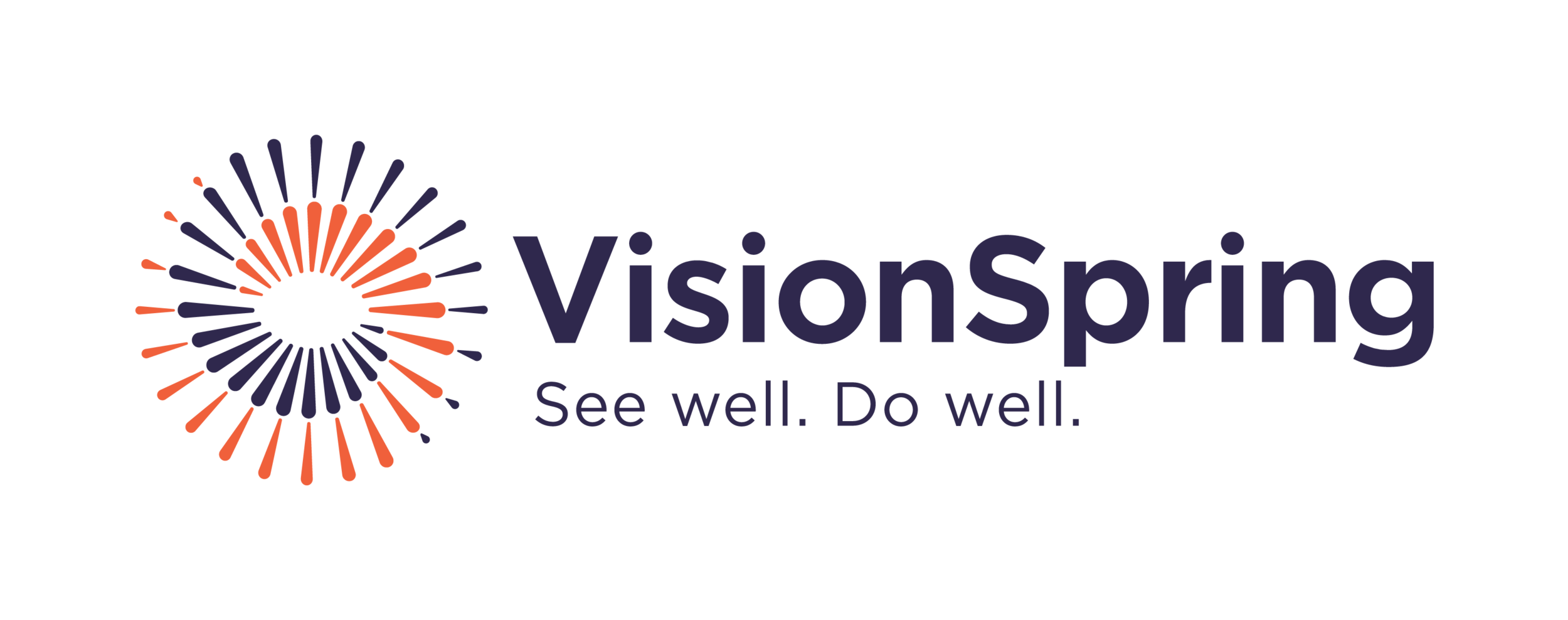Masks4all: distribution to pharmacies in rural northern Bangladesh
As Bangladesh begins to ease coronavirus lockdown restrictions, and cases continue to rise, we are working to bring cloth masks to communities, non-medical staff, and rural medical practitioners to curb the community-spread of the virus. Beginning in mid-May our team in Bangladesh is delivering 25,000 two-ply, pleated cotton cloth masks to pharmacists in rural bazaars that sell our reading glasses, hospital partners, and homes for the elderly around the country.
13,000 of these masks are being distributed in the northern districts of Sherpur and Netrokona. We normally work in these districts to supply rural pharmacies and rural medical practitioners with reading glasses, a simple tool that is not easily sourced outside of urban centers in Bangladesh. We know the area well and have strong partnerships in hard-to-reach villages.
The masks are from a commission of 25,000 from Beximco Textiles, supported by Target—a factory that has participated in VisionSpring's Clear Vision Workplace program. We created two styles—the first is a two-ply, cotton pleated mask with ties (rather than loose ear loops) for public use, and the second is a HEPA filter mask modeled after the Olson mask developed at UnityPoint Health's innovation center to provide an extra layer of protection for use by secondary healthcare workers, like pharmacists.
Mr. Lalchan, a rickshaw driver in Sherpur, Bangladesh wearing a VisionSpring cloth mask.
insight from distribution
Mr. Lalchan is a rickshaw driver in Sherpur, Bangladesh. He was making $6-$7 USD per day prior to COVID-19. Now, he’s making $3-4 USD per day because of the lockdown and the reduced movement of his customers.
When we met, he was wearing a thin mask that wouldn’t last more than three to four days. He understood the need to wear a mask in accordance with government requirements, and because he interacts closely with the people he transports around town. However, with fewer customers and less income, he told us there was no way he could continue to buy masks. Since we were actively distributing some of our two-ply cotton masks in his bazaar, we were very happy to give him one. We explained the protective benefits of two layers of fabric (both for himself and those around him), how to wear the mask correctly (full covering the nose and mouth), and the proper cleaning methods using detergent or boiling water. We were grateful for Mr. Lalchan sharing his experience with us, and were glad to learn that the information we shared was new for him. He said he’d be sure to tell others.
A rural medical practitioner at a pharmacy in Sherpur, Bangladesh tying on a two-ply cotton pleated cloth mask.



